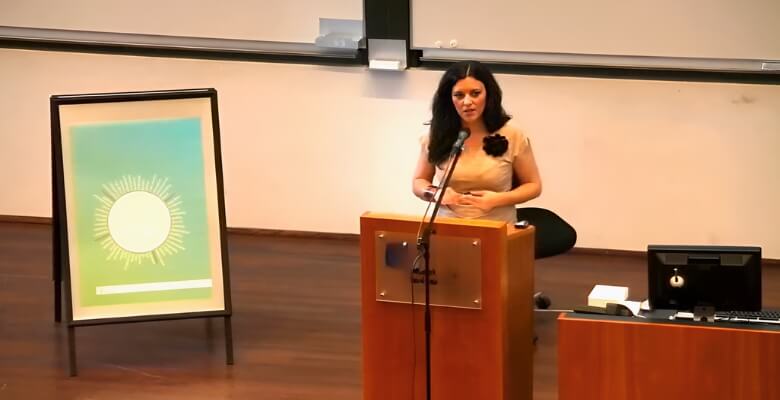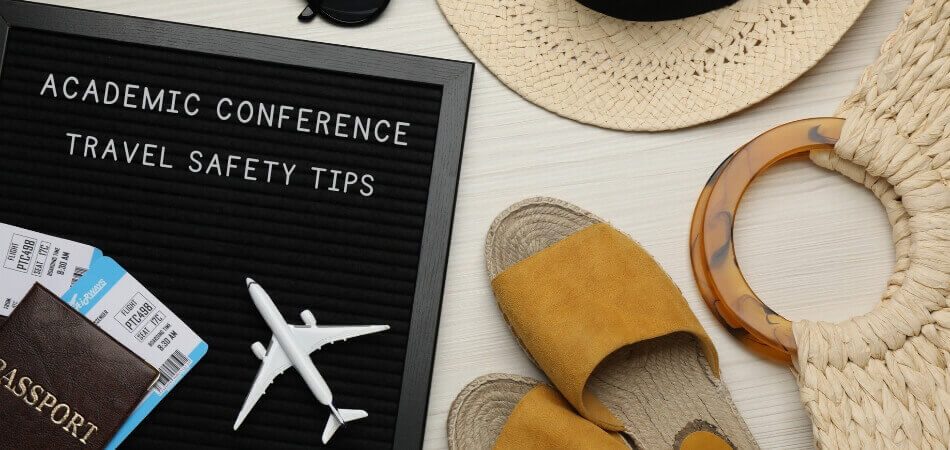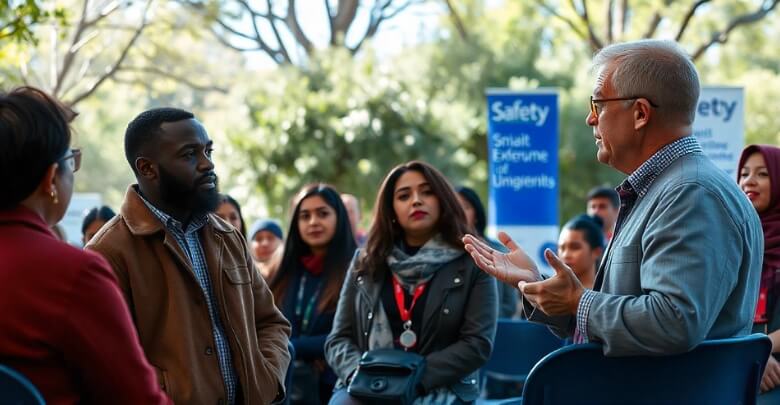Professionals are attracted to academic conferences for the opportunity to connect with experts, researchers, and academics, discuss innovations, and engage with the latest ideas. Besides the value conferences offer, they also come with practical benefits, especially for those who travel, which leads to the question: What are some safety tips for traveling to an academic conference?
To ensure a smooth conference experience, prioritize safety by researching the location, planning travel and accommodations in advance, and keeping emergency contacts easily accessible. Staying cautious with personal belongings, practicing situational awareness, and preparing health essentials are also essential for secure, worry-free travel.
Curious to explore this topic in depth? Dive into this article to discover valuable insights on safe travel practices, networking tips, and effective strategies for making the most of your academic conference experience while ensuring your safety.
Academic Conferences: Why Should You Attend One?
Participating in an academic conference offers many benefits, including networking and sharing ideas with experts. Conferences allow you to connect with other researchers, which can be great for building your career. By attending, you gain fresh perspectives and insights that might not be available in your regular academic environment.
You can also find new research trends and techniques. Engaging with diverse professionals helps you understand different methods and applications. The introduction to various ideas can inspire your work, push your limits, and help you build new skills and knowledge for future projects.
Whether it’s a local event or a larger conference in Canada, you get a unique chance to present your work to a wider audience. Presenting in front of others enhances your confidence and allows you to receive valuable feedback. Such interactions are priceless for personal and professional growth in any field.
What Are Some Safety Tips for Traveling to an Academic Conference?
Traveling to an academic conference offers great learning and networking opportunities, but safety should be a priority. From planning transportation to reaching the conference location, a few precautions ensure a smooth and secure experience.
Research Conference Location and Accommodations
Knowing the conference location, including local transport and nearby safe areas, reduces potential risks. Look into reputable accommodations close to the venue with good reviews from past guests to ensure safety. Knowing about local amenities and possible nearby assistance can make your stay more secure and allow you to focus on the conference itself.
Plan Your Schedule and Share with Someone You Trust
Organizing a detailed schedule, including travel schedules, accommodation details, and conference sessions, helps keep your schedule in order. Share these plans with a trusted person, so someone knows your whereabouts. Having a reliable contact who knows your plans provides peace of mind and added safety, especially if something unexpected arises.
Book Travel Wisely for Safety
Booking transportation early secures safe travel options and avoids last-minute stress. Planning in advance gives you the chance to choose reliable providers and ensures a relaxed start to your journey. Keep copies of tickets and confirmations accessible for easy reference during your travels to ensure your plans stay organized and stress-free.
Be Cautious with Personal Items
Keep personal items secure, especially in crowded spaces like airports and conference venues. Using a crossbody bag or secure backpack with multiple zippers reduces theft risks. Secure storage of valuables and always being mindful of your possessions help avoid unnecessary stress and ensure your items stay safe during conference activities and travel.
Ensure Access to Emergency Contacts and Information
Having emergency contacts saved on your phone and paper can be crucial. Familiarize yourself with local emergency numbers, hospital locations, and conference venue safety procedures. Staying informed about available resources and emergency contacts provides added security, giving you a dependable plan should unexpected situations arise.
Practice Situational Awareness
Stay mindful of your surroundings throughout your conference experience. Avoid excessive phone use or other distractions when in public or unfamiliar areas. Engaging in situational awareness helps you stay alert, which contributes to your safety and makes navigating the conference location easier, especially if you’re in a new city.
Keep Health and Safety Essentials Handy
Bringing health items like masks, hand sanitizer, and any essential medications is a smart precaution. These essentials are especially important when you’re far from home, where local healthcare options might not be familiar. Staying prepared with necessary health items keeps you comfortable and helps prevent minor inconveniences from disrupting your conference experience.
Use Conference Resources and Security Staff
Many conferences have dedicated on-site resources, such as security personnel or help desks for attendees. Familiarize yourself with the location of these resources in case you need assistance. Knowing you have support available in unfamiliar places provides extra security and makes navigating the event simpler if issues arise.
Following these tips contributes to a secure, productive conference experience. For peace of mind, look for the optimal travel booking time for conferences, as planning ahead helps secure convenient travel arrangements and reduces potential last-minute issues.
How to Protect Your Devices From Cyber Threats While Traveling to an Academic Conference?
Your devices may be at risk of cyberattacks when you attend academic conferences. Protecting your gadgets from potential threats is crucial for keeping your data safe and secure. By following some essential security practices, you can safeguard your devices throughout your trip. Here are key strategies to keep in mind:
Use a Unique Password for Every Account
Creating unique passwords helps reduce the risk of data breaches while attending an academic conference. Cybercriminals often target weak passwords, so a combination of letters, numbers, and symbols strengthens your defense. Store passwords safely by using a reliable password manager, which keeps them encrypted and easily accessible for your use only during the conference.
Keep Your Software and Security Updated
Regular updates keep your devices protected against evolving threats when you are traveling to an academic conference. These updates often fix security gaps that hackers can exploit. Ensure that your antivirus software and apps are updated before the conference, along with your operating system’s latest patches for optimal security.
Avoid Public Wi-Fi, Use a Personal Hotspot or VPN
Public Wi-Fi networks can be dangerous while attending an academic conference since they are often unsecured, allowing easy access for hackers. Using a personal hotspot or a VPN service is a much safer alternative. VPNs encrypt your online activities, protecting your data from cyber threats while traveling, especially in unfamiliar locations like conference venues.
Disable Bluetooth and File Sharing When Not Needed
Turning off file-sharing and Bluetooth at an academic conference lowers your vulnerability to illegal connections and cyberattacks. These settings can create openings for hackers to access your device without permission. When not in use, turning these features off limits potential risks, adding an extra layer of security to your device.
Back-Up Important Files and Documents Before Travel
Backing up essential files gives you peace of mind if you lose access to your device during an academic conference. Save backups on secure cloud storage or external drives that you can access easily if needed. Having duplicates of your crucial documents ensures you stay prepared for any data loss, especially while traveling.
Staying alert and prepared can make a significant difference in your device security while traveling. With these essential practices, you’ll minimize cyber risks and ensure a safer experience at your academic conference.
How to Handle Cultural Differences Safely and Respectfully at an Academic Conference?
You can meet people from different cultures and viewpoints by going to an academic conference. Knowing and respecting these cultural differences is crucial for creating a positive experience. Being aware of different norms can help foster better relationships and improve communication. Here are some essential strategies to consider:
Research Cultural Norms and Practices
Familiarizing yourself with the cultural norms of attendees is essential before attending the conference. Different countries have various customs, communication styles, and etiquette. Knowing these aspects helps you avoid misunderstandings and demonstrates respect for your colleagues’ backgrounds during discussions and interactions at the conference.
Practice Active Listening and Observation
When interacting with individuals from diverse backgrounds, listening actively shows you value their perspectives. Observing body language and non-verbal cues can provide insights into their comfort levels and reactions. This approach fosters a more respectful dialogue, creating a welcoming environment during conversations at the academic conference.
Be Open-Minded and Adaptable
An open mind allows you to appreciate various viewpoints and approaches during the academic conference. Adapting to different communication styles and social norms helps build rapport with attendees. This flexibility fosters mutual respect and understanding, which is essential for effective collaboration in a multicultural setting.
Avoid Stereotyping and Making Assumptions
It’s essential to approach every individual as unique, avoiding stereotypes based on their cultural background. Making assumptions can lead to misunderstandings and can damage relationships. Instead, engage each person with curiosity and respect, allowing them to express their individuality during discussions at the conference.
Show Respect Through Your Actions and Language
Using respectful language and behavior during the academic conference reflects your appreciation for cultural differences. Simple gestures, such as using appropriate titles and greetings, can create a positive atmosphere. Demonstrating respect through your actions helps establish strong connections with diverse participants and enhances overall interactions.
Handling cultural differences requires awareness and sensitivity. By implementing these strategies, you can develop meaningful connections with attendees. This approach promotes an inclusive environment, ensuring everyone feels respected and valued at any academic conference you attend.
Tips for Making the Most of Your Academic Conference Safely
Taking part in an academic conference can be a rewarding experience, offering unique insights and connections, but maximizing this opportunity safely requires thoughtful planning. Following these tips will help you make the most of your conference experience securely.
Prepare Essential Documents and Conference Materials
Having essential documents and conference materials organized in advance saves time and reduces stress. Keep items like registration confirmation, identification, and printed copies of key presentations accessible. Being prepared helps you feel confident and ready, allowing you to focus fully on learning and engaging.
Network Mindfully and Build Meaningful Connections
Building connections with fellow attendees enhances the conference experience, developing professional growth and future collaborations. Engage in thoughtful conversations and exchange contacts with individuals who share similar interests. This approach creates genuine connections that contribute positively to both your professional and academic goals.
Manage Your Schedule Wisely for Balanced Engagement
Creating a balanced schedule with time for both sessions and breaks ensures you remain refreshed throughout the conference. Spacing out sessions allows you to absorb information effectively without overwhelming yourself. Proper time management also gives you the flexibility to attend spontaneous events or follow up with new contacts.
Stay Updated on Conference Guidelines and Safety Protocols
Knowing the conference’s specific safety guidelines and protocols keeps you informed and prepared for any circumstances. Familiarize yourself with on-site regulations, including emergency procedures and attendee conduct guidelines. Knowing these details allows you to navigate the event safely and adhere to best practices.
Plan Post-Conference Follow-ups and Reflect on Insights
Reflecting on what you learned and planning follow-ups after the conference reinforces your experience. Gather key takeaways, connect with contacts, and review notes to deepen your understanding. For students or professionals, checking the approval process for attending academic conferences ensures future participation aligns with institutional goals.
Implementing these strategies helps you go through academic conferences effectively. Embrace each opportunity thoughtfully, and you’ll gain valuable experiences and insights that contribute to your professional and personal development.
Frequently Asked Questions (FAQs)
Traveling to an academic conference can be a fulfilling experience, filled with new insights and connections. However, traveling comes with its own set of safety considerations. Here are some frequently asked questions and answers to help you stay safe and prepared on your journey.
How Can I Prepare For Unexpected Travel Delays?
Preparing for unexpected travel delays can make a significant difference. Keep a buffer in your schedule to accommodate potential delays and ensure you have essentials like snacks, water, and a power bank. Download offline maps and save contact information for your accommodations, so you’re prepared even without internet access.
Should I Register With My Country’s Embassy When Traveling Abroad?
Registering with your country’s embassy is a good safety measure for international travel. This allows the embassy to contact you in case of emergencies and keeps you informed about local issues. Many embassies offer online registration, making it a quick and simple step to stay connected and secure.
What Should I Do If I Lose My Travel Documents?
Losing travel documents can be stressful, so it’s best to prepare copies of essential documents like your passport and visa. Keep digital copies on a secure device and store physical copies separately. In case of loss, contact your embassy immediately and inform the local authorities to expedite replacement processes.
How Can I Protect Myself From Scams in a New City?
In unfamiliar cities, it’s wise to be cautious of common scams targeting travelers. Avoid sharing too much personal information, and don’t let strangers handle your belongings. When using local services, confirm rates beforehand to avoid overcharging, and keep emergency contacts ready in case you need assistance.
Is It Safe To Explore The City Alone During The Conference?
Exploring a new city can be enjoyable but should be done with caution. Choose well-populated areas, stay aware of your surroundings, and inform a friend or colleague about your plans. If possible, explore with fellow attendees for added safety, especially in the evening or in unfamiliar neighborhoods.
Final Considerations
Taking part in an academic conference is an exciting opportunity for professional growth and networking. However, it’s essential to prioritize your safety while traveling. Being well-prepared allows you to focus on learning and connecting without unnecessary stress or worry during your trip.
So, what are some safety tips for traveling to an academic conference? Start by researching the conference location, planning your itinerary, and keeping emergency contacts handy. Secure your belongings and practice situational awareness to ensure a smooth experience. Additionally, staying connected with fellow attendees can enhance your safety and enjoyment.
As you begin on your conference trip, remember to stay alert and keep essential health items with you. These simple precautions can significantly impact your overall experience. Best wishes for a safe and rewarding conference experience!








